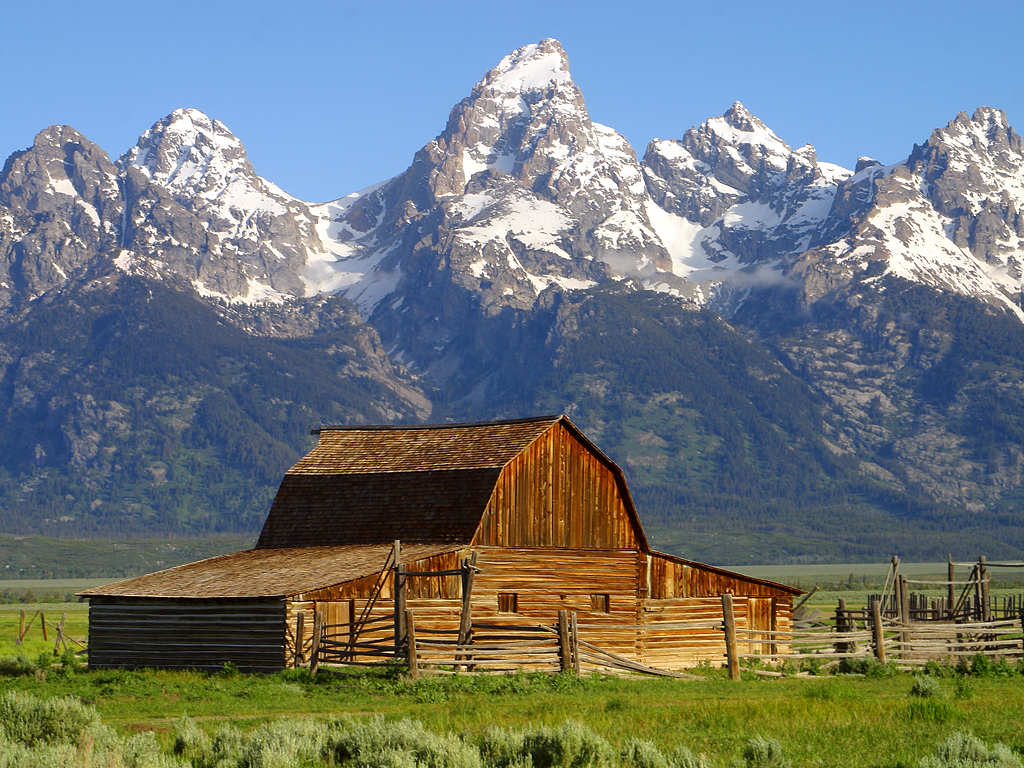Celebrating Excellence: The Jackson Hole Wildlife Film Festival
James Swan 09.10.14

One of the major aspects of the Information Age is that we have more access to an enormous amount of news media than ever before. Determining what news to read is in itself a challenge because there are so many different sources. As news media must compete for readers, studies show that the news today is 17 times more negative than positive. This can distort our sense of what’s actually going on in the world. For example, while crime often dominates the news, the actual crime rate has been dropping.
Another negative news reality is that when it comes to conservation and wildlife-related outdoor recreation news, we tend to hear and read more about animal species becoming extinct and wild lands being endangered. In reality many animal populations are increasing, the number of people who participate in outdoor sports is increasing, and there are more wild lands preserved today that at any time in history.
Negative news of all kinds is a good reason to get outside and enjoy nature more often. As I pointed out in my last column, another way to encourage people to get outdoors is through TV shows and films that don’t just dwell on wildlife and conservation problems, but tell us the full truth of what is really out there—including the beauty of nature. Wildlife and nature film festivals honor those who have made us aware of wildlife and nature, and they provide an opportunity for new filmmakers to show their work and open new ways of thinking and seeing the natural world as well as showcasing conservation success stories. One of the most popular wildlife film festivals is the Jackson Hole Wildlife Film Festival (JHWFF) in Wyoming.
JHWFF has become not just a contest for wildlife-related films—more than 900 entries competed for 23 awards in 2013—but also a conference for those who produce and screen films. It also serves as a forum to discuss some of the conservation issues associated with wildlife conservation, and an opportunity to network with TV channel and program reps, distributors, and manufacturers of equipment.
The JHWFF began modestly in 1991 near Grand Teton National Park. Typically the festival attracts 650 or more people, including luminaries such as Jane Goodall, Richard Leakey, Jean-Michel Cousteau, and David Attenborough. Some consider it an equivalent to the Oscars for wildlife films. One indication of the complexity of the program is that a delegate guide for the JHWFF is nearly 70 pages long.
This year’s, a Science Media Symposium is being held. JHWFF producers are expecting 300 delegates from nongovernmental organizations, cultural institutions, and science media stakeholders to attend a symposium in Boston, co-sponsored with WGBH, September 17 to 19 to discuss the current state of the industry and honor 20 award-winners from almost 500 entries. As many as 350 scientists, filmmakers, and commissioners are expected to participate in the program.
There are costs to attend some parts of the program, but there’s no cost for 90 percent of the public screenings and events.
Producing such event has become a challenging task. According to JHWFF Executive Director Lisa Samford, “Our film competition has the most rigorous judging protocols of any competition I know. Each program is screened by a minimum of three judges (and an average of nine) during the preliminary judging. During the judging for this year’s Science Media Awards, 140-plus judges screened an aggregate 3,500-plus hours (Science Media Awards are held every other year). This year we’ve had almost 500 entries […] from two dozen countries, including numerous US and international TV networks such as Discovery, Animal Planet, National Geographic and BBC.”
Conservation issues are part of the JHWFF annual program. “First and foremost, the Festival and Symposium are media industry conferences anchored on the film competitions that celebrate the world’s finest nature and science programming,” Samford said. “The industry conferences create professional development and networking opportunities through a dense lineup of panels, workshops, screenings, and social events. In addition, we showcase the award-winning films and filmmakers, and keynote Festival guests in a series of public programs presented in tandem with our industry conferences. By celebrating and recognizing the world’s finest nature films, we want to inspire people to connect directly with the natural world. It’s human nature: we love what we know, and we protect what we love. Our goal is to use media to catalyze action and active stewardship in the world.”
With so many competitors, what does it take to be a winner? According to Lisa, a film that has a chance of winning should be an example of “Wonderful storytelling and brilliant craftsmanship.”
If you don’t have a wildlife or conservation film festival in your area, you could start one way by holding a local screening of the winners from JHWFF. They charge only $50, plus postage, for five hours of the best of JHWFF films.

